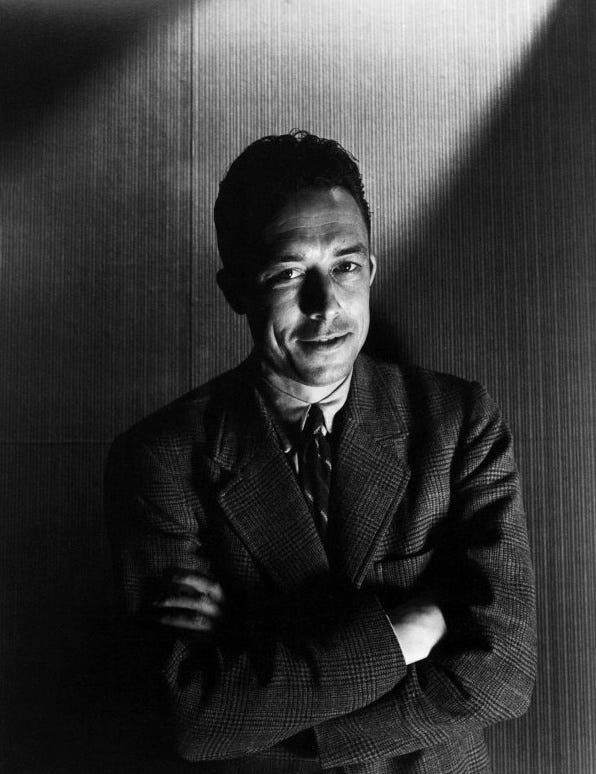Revolt and Reclamation: Radical Self-Expression in an Absurd World
Albert Camus and the Art of Rebellion
This is an adapted excerpt from a lecture I originally outlined when invited to contribute to a symposium that was, at the time, based out of Harvard University. It’s a piece I revisit often, and it feels particularly poignant in the aftermath of the recent presidential election. Below is an abridged version, updated to reflect the present political climate.
Albert Camus begins The Myth of Sisyphus with a question that cuts to the core of existence: “There is but one truly serious philosophical problem, and that is suicide.”
This provocative statement forces us to confront an unsettling reality: if life has no ultimate meaning, what compels us to continue? For Camus, this realization is not a source of despair but an invitation to freedom. The Absurd, as he defines it, arises from the collision between humanity’s craving for meaning and the universe’s indifferent silence. In this paradox lies a kind of liberation: the freedom to reject despair, to revolt, and to create meaning through action.
Revolt, as Camus argues in The Rebel, is not merely a philosophical stance but a profoundly political one. It is a rejection of systems - ideological, social, or cultural - that impose conformity and strip away human dignity. Radical self-expression, whether through art, activism, or sexuality and identity, becomes an act of rebellion against both the Absurd and the institutions that seek to dehumanize. In this essay, inspired by John Cruickshank’s The Literature of Revolt and the incisive critiques of Gore Vidal, I explore how revolt manifests in literature, politics, and human expression. In doing so, I argue that radical self-expression is not merely a response to the Absurd. It is its transcendence.
Camus and the Philosophy of Revolt
Camus’ philosophy of the Absurd begins with an unflinching acknowledgment of life’s lack of inherent meaning. Humans seek patterns, purpose, and permanence, yet the universe remains indifferent and offers none. This dissonance is the essence of the Absurd. Crucially, Camus rejects both nihilism and escapism as responses to this condition. He critiques nihilism as a passive surrender to despair and, he dismisses religious or ideological dogmas as forms of intellectual dishonesty. Instead, Camus proposes revolt: a defiant affirmation of life in the face of its meaninglessness.


